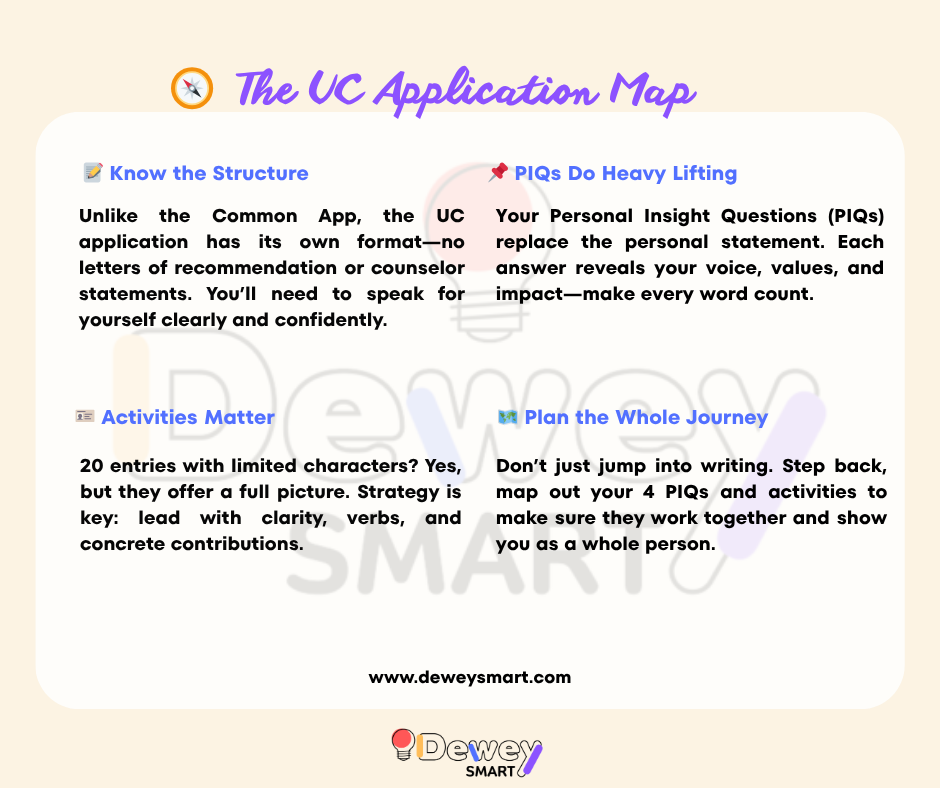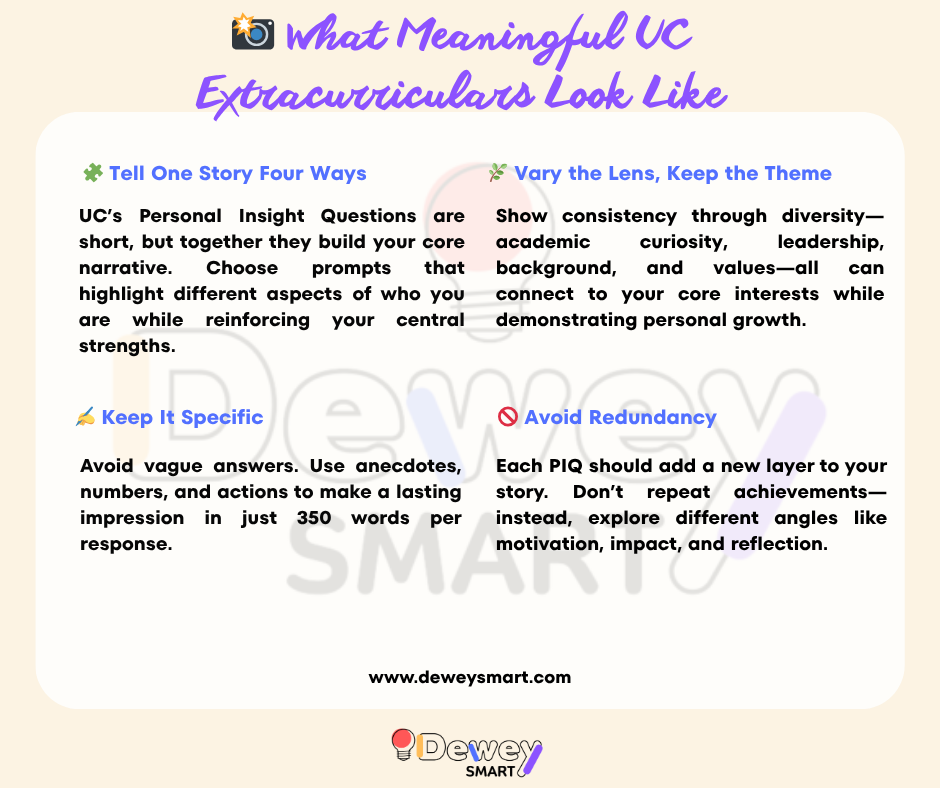
When Mia Avila started her senior year at Diamond Bar High School in California, she felt "very behind" compared to her peers who seemed to be juggling 10 AP classes and countless extracurriculars. Fast forward two years, and she's thriving as a cognitive science major at UCLA, conducting research across three different labs. Her journey reveals crucial insights about what really matters in UC applications—and what doesn't.
The University of California system remains one of the most competitive public university systems in the country, with an overall admissions rate of just 28%. For out-of-state students, the challenge is even steeper, with flagship schools like UC Berkeley admitting 80% of their freshman class from California residents. However, understanding the unique approach the UC system takes to college admissions counseling can dramatically improve your chances of success.
Unlike Ivy League admissions where having a specific "spike" or exceptional talent in one area often determines success, the UC system operates more like a comprehensive point system. This fundamental difference shapes how to get into top universities within the UC network.
"The UC application almost acts as a checklist," explains Michael Gao, founder of Dewey Smart. "Every factor from leadership to extracurriculars to challenges you face adds up. No single element will define your application."
This approach means the UC system actively seeks well-rounded students rather than specialized prodigies. The application structure itself reflects this philosophy—UC applications provide 20 spots for extracurriculars compared to only 10 on the Common App. This isn't an accident; it's a signal that the admissions committees want to see breadth alongside depth.

The UC system publishes their 14-point comprehensive review criteria, ranking factors by importance. At the very top? GPA and performance in A-G subject areas. This transparency provides a roadmap for high school students college prep that many families overlook.
"Grades are the biggest factor in a UC college application," Gao emphasizes. "It's not just your GPA—it's your performance beyond minimum requirements."
For students whose grades aren't perfect, the additional information section becomes crucial. Rather than simply listing excuses, successful applicants contextualize their academic performance. Did family responsibilities require you to work part-time or care for siblings? Did a health issue affect one semester before you bounced back stronger? The UC system wants to understand your full story, but only if you tie challenges to growth and learning.
Perhaps no aspect of UC application tips is more misunderstood than the Personal Insight Questions (PIQs). Students must select four questions from eight options, with each response limited to 350 words. The temptation is to treat each PIQ as a separate entity, but successful applicants think strategically about their collective narrative.
"You want to have a consistent theme or through line throughout your application process," Mia explains. "Whether it's 'I'm here to fight for social justice' or 'I'm excited about the future of robotics,' that theme should be represented in at least four different ways across your PIQs."
Consider a student passionate about environmental science. Rather than writing about environmental topics four times, they might:
This approach showcases environmental passion while demonstrating leadership, service, personal growth, and intellectual curiosity—checking multiple boxes on the UC evaluation criteria.
Mia's high school experience illustrates a common anxiety among college counseling services clients. "I would see my peers and be like, oh my gosh, they're doing so many things," she recalls. "I was constantly comparing myself to them."
Her breakthrough came through finding genuine passions—soccer and founding a media club that helped local businesses with photography and social media during COVID. These activities weren't chosen for college applications; they emerged from authentic interests and evolved into meaningful commitments.
The UC system explicitly values "outstanding performance in one or more academic subject areas" and "outstanding work in one or more specific projects." This means two to three deep commitments often outweigh a lengthy list of superficial involvements.

For families seeking California admissions from other states, the statistics are sobering. However, strategic approaches can help level the playing field. The key lies in understanding that while UC schools share an application system, they evaluate candidates individually.
"Don't just limit yourself to Berkeley and UCLA," advises Gao. "Many UCs have top-ranked engineering programs like UCSD, UC Irvine, and UC Davis. Google hires computer science graduates from UC Santa Barbara who finished in the top third over UC Berkeley graduates who finished in the bottom half."
For out-of-state students, this means applying broadly across the UC system while being strategic about major selection. Engineering and business programs face the highest competition, so students without exceptional qualifications in these areas might consider applying to less competitive majors with the possibility of switching later.
Mia's current experience at UCLA—conducting autism research, building AI models for sustainable fishing, and studying cancer psychology—demonstrates the opportunities that await successful UC applicants. More importantly, her journey from feeling "behind" in high school to thriving in college illustrates that authentic passion and genuine growth matter more than perfect credentials.
"Don't compare yourself to the people around you," Mia advises current applicants. "Focus on your own path. This life is yours, and this path is something you're going to build for yourself."
While the UC system provides transparency about their evaluation criteria, translating that information into a compelling application requires expertise and strategic thinking. The college application process involves numerous deadlines, essay requirements, and strategic decisions that can make or break an applicant's chances.
Dewey Smart admissions support helps families navigate these complexities through current college students who recently completed the process themselves, combined with seasoned admissions professionals. This dual perspective ensures students receive both practical, up-to-date advice and strategic guidance rooted in deep admissions expertise.
The UC application represents an incredible opportunity for students who approach it strategically. By understanding the system's unique priorities, crafting cohesive narratives across multiple essays, and presenting authentic experiences with proper context, students can compete successfully for spots at some of the nation's most prestigious public universities.
Ready to crack the UC code?
At Dewey Smart, we understand the unique challenges and opportunities of the California educational landscape. Contact us today to develop your personalized roadmap to college success.
